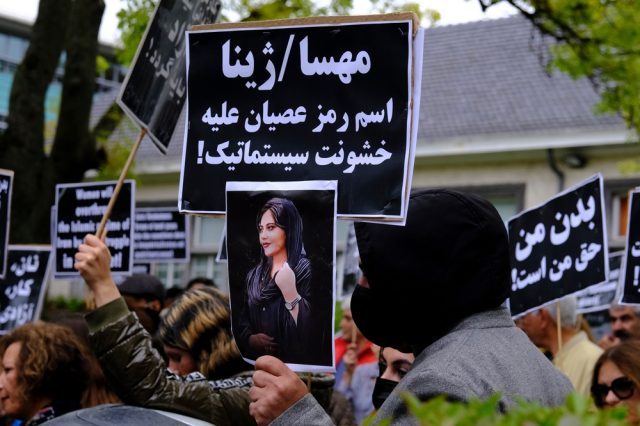
On 16 September, 22-year-old Mahsa Amini, a Kurdish minority, died in Tehran while under arrest. The Morality Police had arrested her on charges of wearing the veil in a manner not in accordance with the law.
Last August, Iranian President Ebrahim Raisi had reworked the dress code for women, promulgating a decree containing a number of specific prescriptions.
For the defence of freedom and the demand for rights, therefore, Iran has for months been ablaze with demonstrations by civil society, which no longer tolerates the oppressive regime of the Ayatollahs. Shouting ‘Death to the dictator’, many young people take to the streets to challenge Ali Khamenei, Iran’s most important person, a fundamental figure of political and religious power.
According to Prof. Giuseppe Acconcia, journalist and professor of Political Sociology at the University of Padua, as reported by Sky Tg24, Iranians want to “eliminate the compulsory veil, ease the impositions of the Islamic republic’s laws and restrict the powers of the supreme leader. The Iranian people are very young and want radical change in their country: the protests in Iran are very powerful and can have a significant effect on the political establishment’.
These protests seem, therefore, to be the symptom of a deep malaise, fuelled by years of terror and restrictions that have set Iran back centuries, compared to Western democratic countries.
The UN adopted four resolutions (in 2006, 2007, 2008 and 2010) to push Iran to abandon its uranium enrichment projects for nuclear proliferation, followed by specific sanctions, also adopted by the European Union. In recent years, the EU has intervened through:
– trade restrictions (export of weapons and products that can be used in enrichment-related activities; import of crude oil, natural gas and petrochemical and petroleum products; ban on the sale or supply of materials and equipment used in the energy sector, gold, other precious metals and diamonds, software, etc.); and
– restrictions in the financial sector: freezing of the assets of the Central Bank of Iran and major Iranian commercial banks; reporting mechanisms and requesting permission to transfer funds above certain amounts to Iranian banks.
– Measures in the transport sector: ban on Iranian cargo flights from EU airports; ban on the provision of maintenance services to Iranian aircraft and cargo ships carrying prohibited materials or goods.
Moreover, since 2011, the EU has adopted restrictive measures in response to growing human rights violations, such as: freezing of assets and denial of visas to individuals and entities guilty of serious violations; a ban on exports to Iran of anything that could be used for acts of internal repression and population control.
On 17 October, in response to the death of Mahsa Amini, the European Council decided to place under sanctions the eleven individuals and four entities that played a direct role in the death of the young Kurdish woman and in the repression of peaceful demonstrations organised in the country.
In response, Iran decided to launch specific sanctions against 12 individuals and eight entities of the European Union. The EU reacted by clarifying that these sanctions are unacceptable because they are based on a political and ideological approach, not on concrete grounds. On the contrary, Brussels’ decision to impose new sanctions on Theran stems from the need to curb the regime’s growing oppression and increasingly violent compression of rights.
The Iranian Revolution, which began in 1979, has led Iran to be an isolated country in which the population is subject to rules derived directly from the Koran and religion. The condition of women is dramatic and it is not surprising that it is precisely feminist movements (and ethnic minorities such as the Kurdish one) that animate the demonstrations. Famous are the images of young Iranian women before the Revolution, wearing western clothes and in universities, both of which were abandoned with the arrival of the Ayatollahs.
While respecting the sovereignty of each state, it is nevertheless the duty of the EU and the West to work to ensure respect for human rights, in the face of violations that have led to the deaths of several people in recent months.



 Subscribe
Subscribe